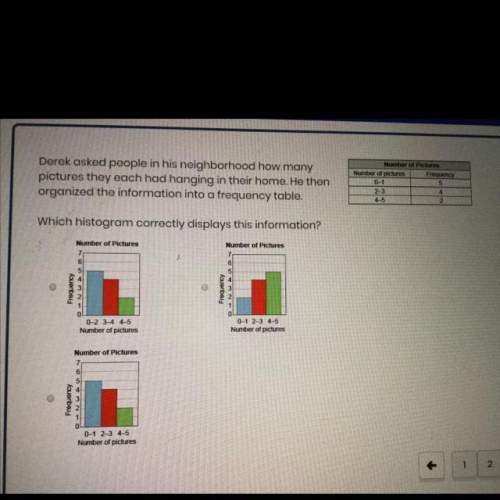
Mathematics, 18.10.2019 22:30 shemarmcdonald4662
Members of the millennial generation are continuing to be dependent on their parents (either living with or otherwise receiving support from parents) into early adulthood (the enquirer, march 16, 2014). a family research organization has claimed that, in past generations, no more than 30% of individuals aged 18 to 32 continued to be dependent on their parents. suppose that a sample of 400 individuals aged 18 to 32 showed that 136 of them continue to be dependent on their parents. a. develop hypotheses for a test to determine whether the proportion of millennial continuing to be dependent on their parents is higher than for past generations. b. what is your point estimate of the proportion of millennials that are continuing to be dependent on their parents? c. what is the p-value provided by the sample data? d. what is your hypothesis testing conclusion? use alpha = .05 as the level of significance.

Answers: 3
Another question on Mathematics

Mathematics, 21.06.2019 20:00
What are the digits that repeat in the smallest sequence of repeating digits in the decimal equivalent of 24/11?
Answers: 1

Mathematics, 21.06.2019 23:30
Kristen is wrapping presents for the holidays. she has a box that measures 4 ft. x 2 ft. x 2 ft. how many square feet of wrapping paper does she need to cover the box without overlapping?
Answers: 1


Mathematics, 22.06.2019 00:30
The length of a rectangle plus its width is 24 cm. the area is 143 square cm. what are the length and width of the rectangle?
Answers: 1
You know the right answer?
Members of the millennial generation are continuing to be dependent on their parents (either living...
Questions






History, 08.09.2020 14:01






Mathematics, 08.09.2020 14:01

History, 08.09.2020 14:01


Computers and Technology, 08.09.2020 14:01

Mathematics, 08.09.2020 14:01

Physics, 08.09.2020 14:01

Spanish, 08.09.2020 14:01


 The mean of adults aged 18 to 32 that continue to be dependent on their parents is 0.3
The mean of adults aged 18 to 32 that continue to be dependent on their parents is 0.3
 The mean of adults aged 18 to 32 that continue to be dependent on their parents is greater than 0.3
The mean of adults aged 18 to 32 that continue to be dependent on their parents is greater than 0.3

 such that the area under the Normal curve to the right of
such that the area under the Normal curve to the right of 
 = mean of the sample
= mean of the sample
 = mean of the null hypothesis
= mean of the null hypothesis




